
In 1991, Mark Osteen and his wife, Leslie, were struggling to understand why their son, Cameron, was so different from other kids. At age one, Cam had little interest in toys and was surprisingly fixated on books. He didn’t make baby sounds; he ignored other children. As he grew older, he failed to grasp language, remaining unresponsive even when his parents called his name. When Cam started having screaming anxiety attacks, Mark and Leslie began to grasp that Cam was developmentally delayed. But when Leslie raised the possibility of an autism diagnosis, Mark balked. Autism is so rare, he thought. Might as well worry about being struck by lightning.
Since that time, awareness of autism has grown monumentally. Autism has received extensive coverage in the news media, and it has become a popular subject for film, television, and literature, but the disorder is frequently portrayed and perceived as a set of eccentricities that can be corrected with proper treatment. In reality, autism permanently wrecks many children’s chances for typical lives. Plenty of recent bestsellers have described the hardships of autism, but those memoirs usually focus on the recovery of people who overcome some or all of the challenges of the disorder. And while that plot is uplifting, it’s rare in real life, as few autistic children fully recover. The territory of severe autism—of the child who is debilitated by the condition, who will never be cured—has been largely neglected. One of Us: A Family’s Life with Autism tells that story.
In this book, Mark Osteen chronicles the experience of raising Cam, whose autism causes him aggression, insomnia, compulsions, and physical sickness. In a powerful, deeply personal narrative, Osteen recounts the struggles he and his wife endured in diagnosing, treating, and understanding Cam’s disability, following the family through the years of medical difficulties and emotional wrangling. One of Us thrusts the reader into the life of a child who exists in his own world and describes the immense hardships faced by those who love and care for him. Leslie and Mark's marriage is sorely tested by their son's condition, and the book follows their progress from denial to acceptance while they fight to save their own relationship.
By embracing the little victories of their life with Cam and by learning to love him as he is, Mark takes the reader down a road just as gratifying, and perhaps more moving, than one to recovery. One of Us is not a book about a child who overcomes autism. Instead, it’s the story of a different but equally rare sort of victory—the triumph of love over tremendous adversity.

A picture-book journey through the Boundary Waters Canoe Area Wilderness in winter, snowshoeing the frozen lakes and silent forest with family, encountering the wonders of northern wildlife in the cold season
In winter the Boundary Waters, way up north in Minnesota, is not the same place you canoed last summer—but still it beckons and welcomes you. Grab a pack, strap on snowshoes, make a path (Oh! they take some getting used to!), and venture out across the frozen lakes and through the snowy woods. The vast wintery world here is so still and quiet, you might think you’re all alone—but no! Who made these tracks? A deer? A hare? A fox? And far off there’s a musher, making tracks with his sled dogs.
It’s a magical place. The bright sun brilliant on the snow, the sparkling silence—wait, is that a wolf calling? Try to answer! And when the dark descends, the stars and pine trees holding up the night, your nose gets cold and it’s back to camp, to your warm winter tent, where Father feeds the stove with wood you gathered, Mother snuggles into her big sleeping bag, and you curl up in the fire’s glow and know that in your dreams and memories you will return again and again to this one winter up north.
A wintery adventure that unfolds in pictures, John Owens’s delightful book gives readers a chance to discover—or rediscover—another season full of wonder in the Boundary Waters Canoe Area Wilderness.
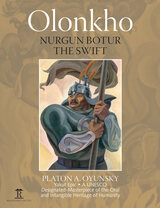

Even before he wrote his bestselling book The Ethnic Cleansing of Palestine, historian Ilan Pappe was a controversial figure in Israel. In Out of the Frame, he gives a full account of his break with mainstream Israeli scholarship and its consequences.
Here he traces his journey of discovery from the whispers of Palestinian classmates to his realisation that the 'enemy's' narrative of the events of 1948 was correct. After completing his thesis at Oxford University in the early 1980s, he returned to Palestine determined to protect the memory of the Nakbah. For the first time he gives the details of the formidable opposition he faced in Israel, including death threats fed by the media, denunciations by the Knesset and calls for him to be sacked from his post at Haifa university.
This revealing work, written with dignity and humour, highlights Israel's difficulty in facing up to its past and forging a peaceful, inclusive future in Palestine.


The western Ojibwa are descendants of Ojibwa who migrated from around the Great Lakes in the late 18th century. This was an era of dramatic change. Between 1780 and 1870, they survived waves of epidemic disease, the rise and decline of the fur trade, the depletion of game, the founding of non-Native settlement, the loss of tribal lands, and the government's assertion of political control over them. As a people who emerged, adapted, and survived in a climate of change, the western Ojibwa demonstrate both the effects of historic forces that acted upon Native peoples, and the spirit, determination, and adaptive strategies that the Native people have used to cope with those forces. This study examines the emergence of the western Ojibwa within this context, seeing both the cultural changes that they chose to make and the continuity within their culture as responses to historical pressures.
The Ojibwa of Western Canada differs from earlier works by focussing closely on the details of western Ojibwa history in the crucial century of their emergence. It is based on documents to which pioneering scholars did not have access, including fur traders' and missionaries' journals, letters, and reminiscences. Ethnographic and archaeological data, and the evidence of material culture and photographic and art images, are also examined in this well-researched and clearly written history.

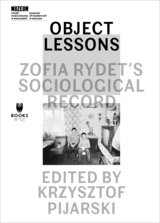
Object Lessons, a new volume of essays inspired by an exhibition at the Museum of Modern Art in Warsaw, helps to dispel the myths that have formed around the project in recent years and introduces the photographer to a new global audience. The essays here contextualize and interpret “Sociological Record” from different perspectives, opening up the work to further inquiry as both an object of interpretation and a subject of theoretical interest. Rydet herself remained unresolved over the question of how to define her work, leaving the viewer to ponder whether her magnum opus is a piece of art or science. What does remain undisputed is that “Sociological Record” is a striking testimony of its time.
A fascinating celebration of Rydet’s work that is sure to spur on fresh debate about art as a social practice and a tool of knowledge, Object Lessons reminds us of photography’s incredible power to provide a visual way of thinking and a provocative method for archiving the world.

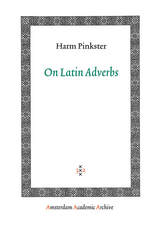

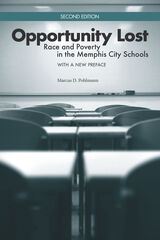
In Opportunity Lost, Marcus D. Pohlmann examines the troubling issue of why Memphis city school students are underperforming at alarming rates. His provocative interdisciplinary analysis, combining both history and social science, examines the events before and after desegregation, compares a city school to an affluent suburban school to pinpoint imbalances, and offers critical assessments of various educational reforms.
In addition to his analysis of the problems, Pohlmann lays out educational reforms that run the gamut from early intervention and parental involvement to increasing teacher compensation, improving time utilization, and more. Pohlmann’s illuminating and original study has wide application for a problem that bedevils inner-city children everywhere and prevents the promise of equality from reaching all of our nation’s citizens.

Besides turning to the archives of the Lantern and the Makio to research the book, Pollard also relied on conversations with past Board of Trustees Secretary Carl E. Steeb, Professor Charles W. Foulk who actually competed for Ohio State as a student on the university’s first basketball team, and then current Athletic Director, Richard C. Larkins. Because many of the university’s earliest records were lost or destroyed, a significant amount of information also came from Columbus newspapers, Alumni Monthly, and official records of the faculty, trustees, and presidents.
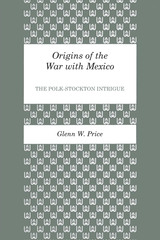
In the spring of 1846 James K. Polk announced that the Mexican Army had invaded United States territory and had “shed American blood upon the American soil.” This political rhetoric, as Glenn W. Price establishes in Origins of the War with Mexico: The Polk-Stockton Intrigue, is part of the myth of American innocence. It represents the “internal contradiction between professed values and patterns of action,” perpetuated by American historical writing that emphasizes national consequences of the acquisition of foreign territory and minimizes both its international significance and the importance of the diplomatic and military methods used.
A conflict with Mexico, leading to territorial expansion of the United States, was not unwanted. California was Polk’s prime objective from the beginning of his administration, and this Mexican province was to be acquired by conquest in a war initiated on the Texas-Mexican border. To this end Polk sent several agents to Texas, but the man at the center of the war intrigue was Commodore Robert F. Stockton, independently wealthy, prominent in politics, and the head of great business enterprises.
Sufficient evidence exists to substantiate in every important particular the steps in Polk’s path of intrigue: his attempts to bribe Mexican officials; his efforts to encourage revolutionary forces in the Mexican provinces; his use of the threat of force to frighten Mexico into selling California; his attempt to initiate a war by proxy through the government of Texas and Anson Jones.
If Polk was unwilling to assume responsibility for aggressive war, Stockton was not; he arrived in Galveston with a squadron of naval vessels in May of 1845, prepared to finance an army of three thousand men from his personal funds to avoid the overt involvement of the government of the United States. But, says Price, for all the internationally dangerous implications of such a maneuver, the two men who played the chief roles in the war intrigue of 1845 are representative in their written and spoken expression of faith in American righteousness of action and in the American tradition of the divine mission.
Based on extensive research into the written and spoken words of the people who were involved, directly and indirectly, in the events, this analysis (which will be considered revisionist) of the origins of the War with Mexico is the result of the kind of objective approach to national history for which the author makes a plea in his preface and conclusion and in his interpretive comments throughout the work. The historian, Price believes, “has the extraordinary advantage of being able to examine mankind from that distance and elevation and detachment which so often reveals, as it is designed to reveal, the gulf between pretension and performance.”

Late antique architecture.
Procopius, born at Caesarea in Palestine late in the fifth century, became a lawyer. In AD 527 he was made legal adviser and secretary of Belisarius, commander against the Persians, and went with Belisarius again in 533 against the Vandals and in 535 against the Ostrogoths. Sometime after 540 he returned to Constantinople. He may have been that Procopius who was prefect of Constantinople in 562, but the date of his death (after 558) is unknown.
Procopius’ History of the Wars in 8 books recounts the Persian Wars of emperors Justinus and Justinian down to 550 (2 books); the Vandalic War and after-events in Africa 532–546 (2 books); the Gothic War against the Ostrogoths in Sicily and Italy 536–552 (3 books); and a sketch of events to 554 (1 book). The whole consists largely of military history, with much information about peoples and places as well, and about special events. He was a diligent, careful, judicious narrator of facts and developments and shows good powers of description. He is just to the empire’s enemies and boldly criticizes emperor Justinian. Other works by Procopius are the Anecdota or Secret History—vehement attacks on Justinian, Theodora, and others; and the Buildings of Justinian (down to AD 558) including roads and bridges as well as churches, forts, hospitals, and so on in various parts of the empire.
The Loeb Classical Library edition of Procopius is in seven volumes.
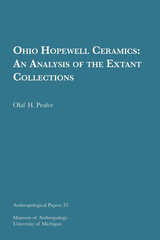
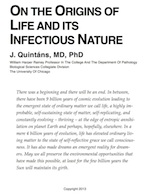
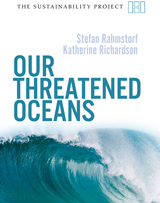
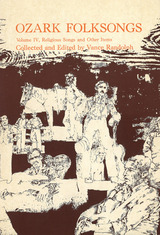
Originally published in 1949, this comprehensive gathering of folksongs is being reissued after many years out of print. The renewed interest in folklore among the general public as well as the scholarly community has prompted this publication.
The collection comprises four volumes including more than eight hundred songs, indexed by title, by first line, and by contributor and town. Each song is thoroughly annotated. In addition to lyrics, the compiler furnished scores and variant lyrics and titles for each song and listed similarities to other songs along with whatever historical information was available to him.
The songs are presented in four volumes. The fourth volume is an assortment of religious songs, hymns, and revival tunes along with sentimental ballads and journalistic pieces.
Characteristic of the compiler's careful work is the painstaking accuracy with which dialect peculiarities are preserved. Randolph scrupulously avoided correcting pronunciation or adding missing words or forgotten lines. Because, as he explains in his introduction, many of the people who sang for him were reluctant to have their voices recorded, his texts represent the best possible reproduction of this priceless American folk art.
A new introduction by W. K. McNeil, folklorist for the Ozark Folklore Center and book review editor for the Journal of American Folklore, comments on Randolph's importance to the field of American folklore and the significance of this work in particular.
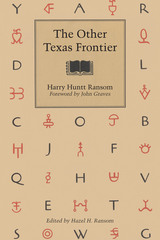
“One is tempted to say that wherever there was a frontier in America there was a counterfrontier and that the main purpose of this counterfrontier was not only to help man grow or dig or catch or kill his livng but also to put this man in communication with the traditions of his kind and thereby secure to his descendants the benefits of the free mind.” —Harry Huntt Ransom
The reflections of Harry Huntt Ransom (1908–1976) in The Other Texas Frontier present an alternative to the stereotypical picture of the brash, blustery heroes of the Texas frontier. Here, in six highly readable essays, Ransom posits a thesis of the counterfrontier: a quiet settling of the land by thoughtful, undramatic citizens who, he says, were the other Texans—the Texans without guns. Three of the essays are profiles of gifted men from Texas’ nineteenth century: Ashbel Smith, physician, diplomat, and first president of the Board of Regents of the University of Texas; Sherman Goodwin, physician, horticulturalist, bibliophile (and Ransom’s own grandfather); and Swante Palm, Swedish immigrant, bibliographer, and generous patron of the University of Texas libraries.
Harry Huntt Ransom, one of Texas’ most accomplished men of letters and for forty-one years an integral part of the University of Texas System as professor, dean, president, and chancellor, leaves an extraordinary legacy to Texas for both his educational and literary service. Though educated out of state, he returned to his native Texas after completion of his PhD at Yale to teach, research, and write in the fields of copyright law, literary history, and bibliography. As founder of the Humanities Research Center, he was squarely in the tradition of the men he was writing about.
Compiled and edited after Ransom’s death by his wife, Hazel H. Ransom, the literary sketches of The Other Texas Frontier form a book that Ransom himself had outlined but had not completed.
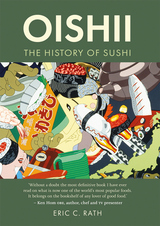
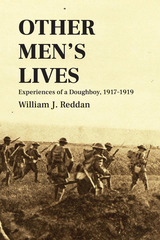
“Who can explain the feelings or thoughts of a soldier during the last few minutes before a battle? He fixes his bayonet, sees that his rifle is working properly, loads it, turns the safety lock, doing a dozen things, automatically from force of training. Just a faint trace of nervousness. . . . A few of us were thinking of a wife and children hoping if it was our turn to ‘Go West,’ that the folks back home would not feel too badly.”—from Other Men’s Lives
Receiving orders in March 1917 to report for active service in the European war, Capt. William J. Reddan and his New Jersey National Guard unit joined the 29th Infantry Division of the U.S. Army. Following training for “Over There,” which included maneuvering under live machine gun and grenade fire and constant bayonet drills, Reddan assumed command of Company B, 114th Infantry—two hundred officers and men. Arriving in France in June 1918, Reddan and his company entered the frontline trenches along the Alsace front in August. Fighting side by side with the French, the 114th conducted patrols in “no man’s land,” repulsed attacks, and endured artillery and chemical barrages. Toward the end of September, the regiment was moved by truck to a new sector: the Argonne Forest. Here, Reddan and his company would be part of the Meuse-Argonne offensive, the largest in the history of the U.S. Army. This final Allied assault would last until the Armistice, November 11, 1918, and claim the most American lives of the war. On October 12, Reddan and the rest of the 114th Infantry were ordered to take a German position that was supposed to offer little resistance; instead, Reddan watched in horror as his company was destroyed: of his two hundred officers and men, only thirteen survived the ordeal. Wounded by both shrapnel and gas, Reddan was evacuated to a field hospital and did not return to his unit until after peace was declared.
Written in 1936, Other Men’s Lives: Experiences of a Doughboy, 1917–1919 recounts the complete story of Reddan’s company in the World War, including the true story of what happened in that tragic October battle as well as the political aftermath that sought to exonerate the upper command who had bungled the operation.
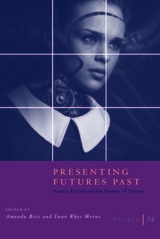
The protagonists of these two enterprises have a lot in common. Both SF and the history of science are oriented towards the (re)construction of unfamiliar worlds; both are fascinated by the ways in which natural and social systems interact; both are critically aware of the different ways in which the social (class, gender, race, sex, species) has inflected the experience of the scientific. Taking a global approach, Presenting Futures Past examines the ways in which SF can be used to investigate the cultural status and authority afforded to science at different times and in different places. The essays consider the role played by SF in the history of specific scientific disciplines, topics, or cultures, as well as the ways in which it has helped to move scientific concepts, methodologies, and practices between wider cultural areas. Ultimately, Presenting Futures Past explores what SF can tell us about the histories of the future, how different communities have envisaged their futures, and how SF conveys the socioscientific claims of past presents.

The Origins of the British Labour Party was first published in 1955. Minnesota Archive Editions uses digital technology to make long-unavailable books once again accessible, and are published unaltered from the original University of Minnesota Press editions.
What were the social and economic forces in England that gave rise to the British Labour Party? How did the party function in its formative years? How does the British labor movement compare with its American counterpart? If American labor enters politics as a separate party, is it likely to adopt a program resembling the socialism of the British Party?
Professor Reid's detailed account of the origins and development of the British Labour Party lays the groundwork for answers to questions like these, questions that are pertinent to the social and political issues of America as well as England. Since the appearance of a body of organized labor is a phenomenon occasioned by the process of industrialization, and since that process began in Great Britain almost a century earlier than on the American continent, the student of labor politics may well ponder whether something similar to the British experience lies ahead for America.
Professor Reid describes the conditions that brought about a specifically labor party, tells how it was established, and traces its first 20 years as a parliamentary party. He shows that the party began as an alliance of diverse forces having in common only the conviction that neither the Liberal nor the Conservative party would tackle such issues as housing, minimum wages, or unemployment insurance. He makes clear that, in working to achieve these short-term goals, the varied elements that made up the party finally worked out the peculiar compromise on policy and philosophy that is the basis of the British Labour Party today.

Winner of the Eleanor Maccoby Book Award
“This engaging and well-written book is a significant advance in our understanding of when and how mentoring matters…[It] lays the foundations for an approach to mentoring that is both rigorous and rich in new ideas.”
—Robert D. Putnam, author of Our Kids: The American Dream in Crisis
“Rhodes forces us to slam the brakes on ineffective practices and improve an industry that is devoted to the potential of our nation’s children…The author’s concrete recommendations will create new pathways to opportunity for youth in greatest need.”
—Michael D. Smith, Executive Director, My Brother’s Keeper Alliance
“A powerful assessment of what is needed to best help young people today.”
—Pam Iorio, President and CEO, Big Brothers Big Sisters of America
Youth mentoring is one of the most popular forms of volunteering in the world today, but does it work? Drawing on over thirty years of research and her own experience in the field, Jean Rhodes reveals that most mentoring programs fail to deliver what young people actually need. Many prioritize building emotional bonds between mentors and mentees. But research shows that effective programs go far beyond this, developing specific social, emotional, and intellectual skills.
Most mentoring programs rely on volunteers, who rarely have the training to teach these skills. Their one-size-fits-all models struggle to meet the diverse needs of mentees, and rarely take account of the psychological effects of poverty on children. Rhodes doesn’t think we should give up on mentoring—far from it. Instead, she recommends “organic” mentorship opportunities—in schools, youth sports leagues, and community organizations—and shares specific approaches that can spark meaningful change in young people’s lives.
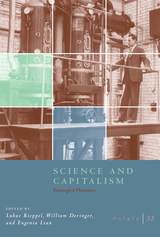
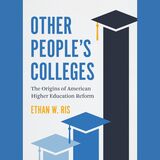
This is an auto-narrated audiobook edition of this book.
An illuminating history of the reform agenda in higher education.
For well over one hundred years, people have been attempting to make American colleges and universities more efficient and more accountable. Indeed, Ethan Ris argues in Other People’s Colleges, the reform impulse is baked into American higher education, the result of generations of elite reformers who have called for sweeping changes in the sector and raised existential questions about its sustainability. When that reform is beneficial, offering major rewards for minor changes, colleges and universities know how to assimilate it. When it is hostile, attacking autonomy or values, they know how to resist it. The result is a sector that has learned to accept top-down reform as part of its existence.
In the early twentieth century, the “academic engineers,” a cadre of elite, external reformers from foundations, businesses, and government, worked to reshape and reorganize the vast base of the higher education pyramid. Their reform efforts were largely directed at the lower tiers of higher education, but those efforts fell short, despite the wealth and power of their backers, leaving a legacy of successful resistance that affects every college and university in the United States. Today, another coalition of business leaders, philanthropists, and politicians is again demanding efficiency, accountability, and utility from American higher education. But, as Ris argues, top-down design is not destiny. Drawing on extensive and original archival research, Other People’s Colleges offers an account of higher education that sheds light on today’s reform agenda.
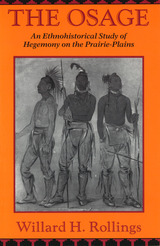
The Osage Indians were a powerful group of Native Americans who lived along the prairies and plains of present-day Kansas, Missouri, Oklahoma, and Arkansas. The Osage: An Ethnohistorical Study of Hegemony on the Prairie-Plains, now available in paper, shows how the Osage formed and maintained political, economic, and social control over a large portion of the central United States for more than 150 years.

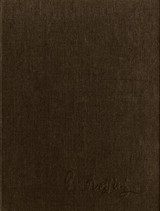
The first of eight serious operas newly-written for the Teatro San Carlo of Naples, Otello reveals Rossini as a composer deeply concerned with both character development and large-scale musical forms. Desdemona's "Willow Song" is a fine example: here not only is variation technique used for dramatic ends, but the song itself forms part of a larger scheme that encompasses the entire third act as a single, unified piece.
Far more than a mere forerunner to Verdi, Rossini's Otello deserves to be known for its own innovative qualities.

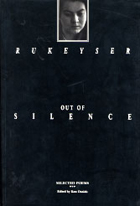



Ibn al-Haytham was perhaps the greatest mathematician and physicist of the medieval Arabic/Islamic world. The most famous book in which he applied his scientific method is his Optics, through which he dealt with both the mathematics of rays of light and the physical aspects of the eye in seven comprehensive books. His rethinking of the entire science of optics set the scene for the whole of the subsequent development of the subject, influencing figures such as William of Ockham, Kepler, Descartes, and Christaan Huygens. The immense work of editing, translating into English, and commenting on this work was undertaken by Abdelhamid I. Sabra. This English translation of Books IV–V was completed by Sabra just before his death in 2013 with an introduction and critical analysis. It has been extensively revised by Jan Hogendijk.

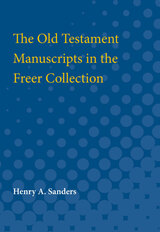
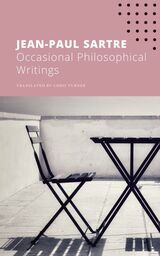
Iconic French novelist, playwright, and essayist Jean-Paul Sartre is widely recognized as one of the most important philosophers of the twentieth century, and his work has remained relevant and thought-provoking through the decades. The Seagull Sartre Library now presents some of his most incisive philosophical, cultural, and literary critical essays in twelve newly designed and affordable editions.
The four essays of varying length assembled in this volume bear witness to Sartre’s preoccupation with philosophers and their work. In these pages he examines Descartes’s concept of freedom; comments on a fundamental idea in Husserl’s phenomenology: intentionality; writes a mixed review of Denis de Rougemont’s monumental Love in the Western World; and provides an extensive critical analysis of the work of Brice Parain, one of France’s leading philosophers of language.
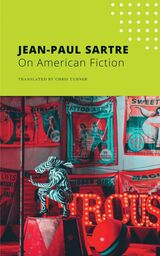
Iconic French novelist, playwright, and essayist Jean-Paul Sartre is widely recognized as one of the most important philosophers of the twentieth century, and his work has remained relevant and thought-provoking through the decades. The Seagull Sartre Library now presents some of his most incisive philosophical, cultural, and literary critical essays in twelve newly designed and affordable editions.
Sartre’s engagement with the literature of his day extended well beyond the works of his French contemporaries. This short volume testifies to his astonishing grasp of the nuances of American fiction, as he analyzes three of the most important twentieth-century writers: John Dos Passos, Vladimir Nabokov, and William Faulkner, whose “humanism,” writes Sartre, “is the only acceptable sort.”
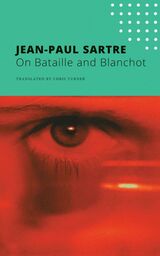
Iconic French novelist, playwright, and essayist Jean-Paul Sartre is widely recognized as one of the most important philosophers of the twentieth century, and his work has remained relevant and thought-provoking through the decades. The Seagull Sartre Library now presents some of his most incisive philosophical, cultural, and literary critical essays in twelve newly designed and affordable editions.
“There is a crisis of the essay,” begins Sartre as he ventures into a long analysis of the work of one of his contemporaries who he argues might save this form: Georges Bataille. From there, Sartre moves on in this compact volume to consider Aminadab, the most important work of another hugely influential philosopher, Maurice Blanchot, through whom, writes Sartre, “the literature of the fantastic continues the steady progress that will inevitably unite it, ultimately, with what it has always been.”
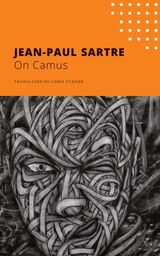
Iconic French novelist, playwright, and essayist Jean-Paul Sartre is widely recognized as one of the most important philosophers of the twentieth century, and his work has remained relevant and thought-provoking through the decades. The Seagull Sartre Library now presents some of his most incisive philosophical, cultural, and literary critical essays in twelve newly designed and affordable editions.
Sartre met Albert Camus in Occupied France in 1943, and from the start, they were an odd pair: one from the upper reaches of French society; the other, a pied-noir born into poverty in Algeria. The love of “freedom,” however, quickly bound them in friendship, while their fight for justice united them politically. But in 1951 the two writers fell out spectacularly over their literary and political views, their split a media sensation in France. This volume holds up a remarkable mirror to that fraught relationship. It features an early review by Sartre of Camus’s The Stranger; his famous 1952 letter to Camus that begins, “Our friendship was not easy, but I shall miss it”; and a moving homage written after Camus’s sudden death in 1960.

Iconic French novelist, playwright, and essayist Jean-Paul Sartre is widely recognized as one of the most important philosophers of the twentieth century, and his work has remained relevant and thought-provoking through the decades. The Seagull Sartre Library now presents some of his most incisive philosophical, cultural, and literary critical essays in twelve newly designed and affordable editions.
This volume consists of a single long essay that analyzes the work of Maurice Merleau-Ponty (1908–1961), who was the leading phenomenological philosopher in France and the lead editor of the influential leftist journal Les Temps modernes, which he established with Sartre and Simone de Beauvoir in 1945. Written in the wake of Merleau-Ponty’s death, this essay is a moving tribute from one major philosopher to another.
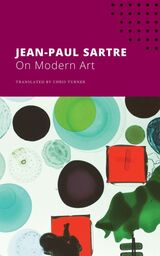
Iconic French novelist, playwright, and essayist Jean-Paul Sartre is widely recognized as one of the most important philosophers of the twentieth century, and his work has remained relevant and thought-provoking through the decades. The Seagull Sartre Library now presents some of his most incisive philosophical, cultural, and literary critical essays in twelve newly designed and affordable editions.
Sartre was a prodigious commentator on contemporary art, as is evident from the short but incisive essays that make up this important volume. Sartre examines here the work of a wide range of artists, including recognized masters such as Alberto Giacometti, Alexander Calder, and André Masson, alongside unacknowledged greats like French painter Robert Lapoujade and German painter-photographer Wols.
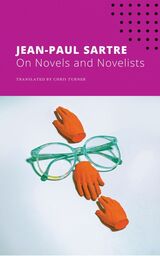
Iconic French novelist, playwright, and essayist Jean-Paul Sartre is widely recognized as one of the most important philosophers of the twentieth century, and his work has remained relevant and thought-provoking through the decades. The Seagull Sartre Library now presents some of his most incisive philosophical, cultural, and literary critical essays in twelve newly designed and affordable editions.
In this collection of brief, insightful essays, we find ourselves face to face with Sartre the literary critic, as he carefully examines the works of renowned French writers such as François Mauriac, Nathalie Sarraute, Jean Giraudoux, and Jules Renard. Most moving is an essay on André Gide, written right after his death, in which Sartre writes, “We thought him scared and embalmed; he dies and we discover how alive he was.”
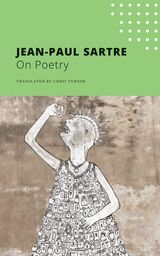
Iconic French novelist, playwright, and essayist Jean-Paul Sartre is widely recognized as one of the most important philosophers of the twentieth century, and his work has remained relevant and thought-provoking through the decades. The Seagull Sartre Library now presents some of his most incisive philosophical, cultural, and literary critical essays in twelve newly designed and affordable editions.
On Poetry includes two long essays in this slim volume. The first explores the Négritude poetry movement by analyzing the work of several Black poets of the time. The second is a meditation on the poetry of renowned French author Francis Ponge (1899–1988), who, influenced by surrealism, developed his unique form of prose poetry.
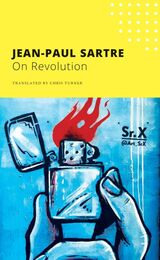
Iconic French novelist, playwright, and essayist Jean-Paul Sartre is widely recognized as one of the most important philosophers of the twentieth century, and his work has remained relevant and thought-provoking through the decades. The Seagull Sartre Library now presents some of his most incisive philosophical, cultural, and literary critical essays in twelve newly designed and affordable editions.
On Revolution consists of a long essay in two parts in which Sartre dwells upon the “myth” of revolution and goes on to analyze revolutionary ideas in fascism and, especially, Marxism. In the second essay, Sartre examines the figure of the artist and his conscience, especially in relation to communism.

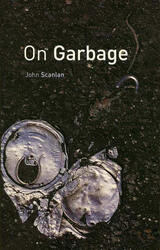
On Garbage is the first book to examine the detritus of Western culture in full range—not only material waste and ruin, but also residual or "broken" knowledge and the lingering remainders of cultural thought systems. Scanlan considers how Western philosophy, science, and technology attained mastery over nature through what can be seen as a prolonged act of cleansing, as scientists and philosophers weeded out incorrect, outmoded, or superseded knowledge. He also analyzes how disposal not only produces overwhelming mountains of waste, but creates dead bits of useless knowledge that permeate the reality of modern Western societies. He argues that physical and intellectual debris reveal new insights into the basic tenets of Western culture and, ultimately, that the abject reality of our disposable lives has led to us becoming the "garbage" of our times.



This acclaimed edition is making available authentic versions of the works of a key figure in the history of opera.
Gli Equivoci nel Sembiante (1679), Alessandro Scarlatti’s first opera, is a comedy of mistaken identities and amorous intrigues in the pastoral mode. It was one of the most popular and widely performed works of the composer’s long career. A small cast and simple scenic requirements make it an ideal work for performances today.
In preparing the score presented here, Frank A. D’Accone compared the six extant manuscripts. His Introduction sketches the opera’s history and discusses performance practice. A translation of the libretto is appended.



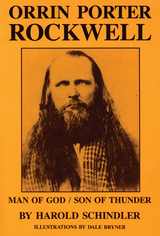
The legend of the Destroying Angel of Mormondom was well established by the time of his death, of natural causes, in 1878. Travelers sang ballads about him as they gathered around their campfires at night. Mothers used his name to frighten children into obedience. He was accused of literally hundreds of murders, all in the name of the Mormon Church.
Yet behind all the myth was a man, a human being. Orrin Porter Rockwell believed in his prophet, Joseph Smith. He spent most of a year chained in an Independence dungeon for his belief, then walked across Missouri to Nauvoo, stumbling into Joseph’s house on Christmas Day. Joseph said to him then, “Cut not thy hair and no bullet or blade can harm thee,” and the legend was born.
Rockwell continued to serve the leaders of his church—as hunter, guide, messenger, scout, guerilla, emissary to the Indians, and lawman. He traveled thousands of miles, raised three families, accumulated land and wealth—and favorably impressed almost everyone who met him. But although he walked with presidents and generals, scholars and scoundrels, in a life lived at the center of many of the great events of the American frontier, he has remained an enigma, a source of continuing controversy.
Harold Schindler’s remarkable investigative skills led him into literally thousands of unlikely places in his search for the truth about Rockwell. Dale L. Morgan, one of the west’s foremost historians, called the first edition “…an impressive job of research, one of the most impressive in recent memory, in the Mormon field. Mr. Schindler has shown great energy and sagacity in dealing with a difficult, highly controversial subject; and he has also made maximum use of the latest scholarship and newly available archival resources.”
But the author was not satisfied until he had probed even more deeply, and this revised and enlarged second edition contains greatly expanded documentation as well as textual additions that flesh out the characters and events of this classic drama of early America.


Despite the comprehensively understood severity of environmental problems faced today, progress in the United States is continually stymied, making sustainability feel like a far-off goal. Obstacles to Environmental Progress takes up the structural, political, and cultural forces that routinely hinder progress on existing environmental issues. Addressing problems both small and large, often regardless of whether an issue is controversial, this book illustrates obstacles that manifest in the United States but are globally pertinent. Peter Schulze identifies eighteen practical obstacles that fall into three categories: scientific challenges to anticipating and detecting problems; political and economic factors that interfere with responding; and obstacles to effective responses. This book seeks to hasten environmental progress by bridging academic disciplines to forewarn and forearm those who might otherwise encounter these anti-environmentalist obstacles in an ad-hoc manner.
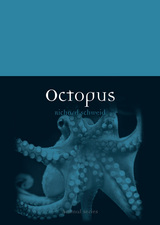

Originally published in French in 1976, Origins was the winner of the coveted Prix Broquette-Gonin of the Académie Francaise. In close collaboration with the author, this meticulously crafted translation was created in the early 1990s, but Schürmann’s premature death in 1993 prevented its publication process and, as a result, one of the most important literary accounts of the conflicted process of coming to terms with the Holocaust and Germany’s Nazi past has been unavailable to English readers until now. Candid and frank, filled with fury and caustic sarcasm, Origins offers insight into a generation caught between disappointment and rage, alignment and rebellion, guilt and obsession with the past.
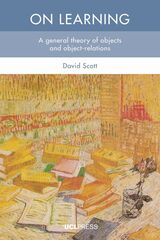
What is learning? This book is a philosophical work that develops a general theory of ontological objects and object-relations, examining concepts as acquired dispositions. David Scott answers a series of questions about concepts in general and the concept of learning in particular. This volume offers a counterargument to empiricist conceptions of learning, rejecting the propagation of simple messages about learning, knowledge, curriculum, and assessment. Instead, Scott argues that values are central to understanding how we live, permeating our descriptions of the world, the attempts we make at creating better futures, and our relations with other people.
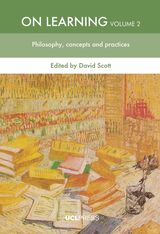
The contributors to this volume focus on two meta-concepts: knowledge and learning, on the relationship between the two, and the way these can be framed in epistemic, social, political, and economic terms. Knowledge and learning, as meta-concepts, are positioned in various networks or constellations of meaning, principally: their antecedents, their relations to other relevant concepts, and the way the concepts are used in the lifeworld.
The various authors in this book explore several important concepts that are relevant to the idea of learning: Meta-concepts such as epistemology, inferential role semantics, phenomenology, rationality, thinking, hermeneutics, critical realism, and pragmatism. Meso-concepts such as probability, woman, training, assessment, education, system, race, friendship, Bildung, curriculum, ecology and pedagogy. Like David Scott’s first volume of On Learning, this collection also focuses on philosophy, concepts, and practices as a response to empiricist and positivist conceptions of knowledge. It challenges reductionist ideas of learning that have filtered through to the management of our schools, colleges, and universities; confronts over-simplified messages about learning, knowledge, curriculum, and assessment; and fosters the denial that values are central to understanding how we live and how we should live, the normative dimension to social policy and social theory.

Alexis Sears’s debut collection, Out of Order, is a collage of unapologetic intimacy, risk-taking vulnerability, and unwavering candor. A biracial millennial woman, Sears navigates the challenges of growing out of girlhood and into womanhood with its potential dangers, interrogating the male gaze, beauty standards, and confidence and identity. Pop culture references run through the collection, with rock icons David Bowie and Prince and poets like Kenneth Koch offering windows into desire and adaptation. In these poems, Sears works through heavy topics, such as loneliness, mental illness, chronic pain, the legacies of race and racism, and the aftermath of a father’s suicide. As she writes, “I’m learning something every ravishing day / and none of it is easy.”
This young poet demonstrates an uncommon mastery of craft, writing in forms including the sonnet redoublé, sestina, canzone, and villanelle. With all her linguistic skills, Sears’s work remains approachable, offering readers a striking blend of honesty, humor, anguish, joy, and surprise. Drawing influence from contemporary poets like Mark Jarman, Erica Dawson, and Tiana Clark, Sears cuts a path of her own.
Out of Order was the 2021 winner of the Donald Justice Poetry Prize.
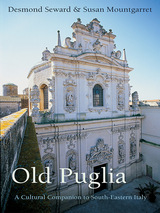

A suspicious mind.
Sextus Empiricus (ca. AD 160–210), exponent of scepticism and critic of the Dogmatists, was a Greek physician and philosopher, pupil and successor of the medical sceptic Herodotus (not the historian) of Tarsus. He probably lived for years in Rome and possibly also in Alexandria and Athens. His three surviving works are Outlines of Pyrrhonism (three books on the practical and ethical scepticism of Pyrrho of Elis, ca. 360–275 BC, as developed later, presenting also a case against the Dogmatists); Against the Dogmatists (five books dealing with the Logicians, the Physicists, and the Ethicists); and Against the Professors (six books: Grammarians, Rhetors, Geometers, Arithmeticians, Astrologers, and Musicians). These two latter works might be called a general criticism of professors of all arts and sciences. Sextus’ work is a valuable source for the history of thought especially because of his development and formulation of former sceptic doctrines.
The Loeb Classical Library edition of Sextus Empiricus is in four volumes.
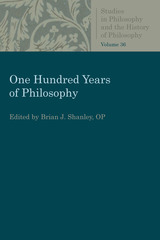
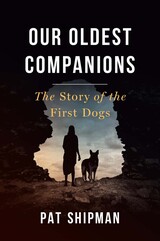
“A lively tale of dog domestication and migration.”—Nature
“When, where, and how did the partnership between dogs and humans begin? Was it an accident? Was it inevitable?…A tour de force drawing together under one proverbial roof what science can tell us to date.”—Wendy Williams, author of The Horse
“Makes a remarkable story out of the long partnership between humans and dogs.”—Foreword Reviews
How did the dog become man’s best friend? A celebrated anthropologist unearths the mysterious origins of the unique partnership that rewrote the history of both species.
Dogs and humans have been inseparable for more than 40,000 years. So what have they taught one another? Determined to untangle the genetic and archaeological evidence of the first dogs, Pat Shipman follows the trail of the wolf-dog, neither prehistoric wolf nor modern dog, whose bones offer tantalizing clues about the earliest stages of domestication. She considers the enigma of the dingo, not quite domesticated yet not entirely wild, and reveals how scientists are shedding new light on the origins of the unique relationship between man and dog, explaining how dogs became our guardians, playmates, shepherds, hunters, and providers. Along the way, dogs have changed physically, behaviorally, and emotionally—but we have been transformed, too. A brilliant work of historical reconstruction, Our Oldest Companions shows that we can’t hope to understand our own species without recognizing the central role dogs have played in making us who we are.
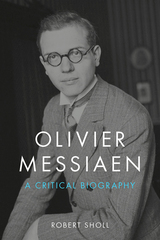
This groundbreaking biography offers fresh perspectives on the life, ideas, and music of French twentieth-century composer, organist, and ornithologist Olivier Messiaen. Drawing from previously unexplored sketches and archival material, the book seamlessly combines elements of biography, musicology, theology, philosophy, psychoanalysis, and aesthetics to present a nuanced perspective on Messiaen’s work. Robert Sholl explores the profound impact of Messiaen’s devout Catholicism, which found expression through his work as a church organist, his engagement with birdsong, his interaction with Surrealism, and his profound influence on major musical figures of the latter twentieth century. Unlike previous biographies, this book also considers the perspectives of Messiaen’s contemporaries and students, providing a comprehensive understanding of his life and artistic legacy.
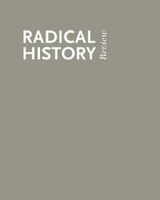
This special issue of Radical History Review takes as its inspiration Cuban writer and revolutionary José Martí’s famous 1891 essay “Our America.” Focusing on Martí’s appropriation of the term “America”—used to refer to a transnational, regional project of solidarity in Latin America and to suggest a new epistemology that challenged the ideologies underpinning U.S. imperialism—Our Americas: Political and Cultural Imaginings investigates the highly contested concept of “the Americas” as it has been defined and deployed in differing strategic and politically informed ways across history. The issue is dedicated to probing the transnational political and social possibilities that emerge when the discursive boundaries established by fields such as “Latin American studies” and “American studies”—as well as the geopolitical boundaries drawn during the colonial era—are expanded or transgressed.
Drawing on history, cultural anthropology, literary criticism, and memoirs, the works in this collection, gathered from contributors from an array of geographic locales, seek to integrate “Latin America,” “North America,” “the Caribbean,” and other regions. Striving to move beyond a simple joining of “Latin America” and the United States, the transnational concept of “the Americas” is explored and complicated through essays that examine the contrasting visions of Latin American independence embodied in the writings of revolutionaries from different nations; discuss the ramifications of a political treaty that institutionalized a separation between Mexico and the United States; deconstruct the exclusionary discourses of U.S. nationalism; and expose the ways in which institutionalized racism and homophobia are roadblocks to social and political solidarity in Latin America. In discussion forums, contributors plumb the history and current relevance of the concept of “Latin America” for intellectual, social, and political work and address the unique challenges facing those who seek to teach “the Americas.”
Contributors. Arturo Arias, John Beck, John D. Blanco, Nestor Garcia Canclini, Patricio Del Real, Ian Christopher Fletcher, Paul Giles, Salah D. Hassan, Martin Hopenhayn, Aisha Khan, R. J. Lambrose, Ian Lekus, Kate Masur, Enrique C. Ochoa, Diana Paton, Rossana Reguillo, Gemma Robinson, Aimee Carillo Rowe, Maria Josefina Saldana-Portillo, Sandhya Shukla, Heidi Tinsman, Carlos E. Bojorquez Urzaiz
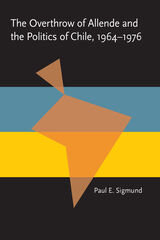
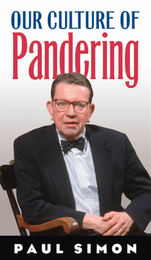
As we broaden our views, embrace our differences, foster advancements in science and technology, and collaboratively strengthen the political, social, and educational underpinnings from which we build informed and productive lives, we have much to be proud of as a nation and as a people.
But we are tempted—particularly during times of political unrest and unbridled patriotism—to ignore the far-reaching repercussions of a society that caters to money and power. In Our Culture of Pandering, former U.S. Senator Paul Simon interrogates the arenas of politics, media, religion, and education to decry the disturbing practices that confuse public service with profit-making ventures or popularity contests, that compromise the best interests of the broader population to appease a powerful few. Boldly and eloquently contributing to a cumulative understanding of how we can build a sturdier, more ethical foundation for the future, Simon suggests proactive, long-term solutions to the problems that threaten our country’s moral, financial, and intellectual well-being—problems that are increasingly exacerbated by our culture of pandering.
Lest we grow complacent and our nation static, Simon urges us to demand more from the political candidates who chase dollar signs and cater to polls, to raise our expectations of local and national media outlets that recycle gossip and peddle scandals while foreign policy and international news receive back-page treatment or no treatment at all. He asks us to consider the implications of churches that spend more money remodeling their buildings than helping those in need within their own communities and throughout the world, and he presses us to acknowledge the staggering, long-term consequences of schools that drop their academic standards to sustain their reputations and maintain funding.
Our Culture of Pandering is a stalwart and earnest call to action from a steadfast and trusted advocate of progressive public policy. Leavened with altruism and rich with compassion for citizens of America and beyond, present and future, this important and cautioning treatise advocates genuine leadership in the realms of politics, media, religion, and education. In his trademark lucid and synoptic style, Simon supplements up-to-date examples of pandering in our society from a breadth of sources with commentary and interpretive wisdom garnered from a lifetime of public service.
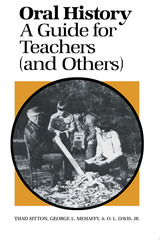
More than a mode of gathering information about the past, oral history has become an international movement. Historians, folklorists, and other educational and religious groups now recognize the importance of preserving the recollections of people about the past. The recorded memories of famous and common folk alike provide a vital complement to textbook history, bringing the past to life through the stories of those who lived it.
Oral History is designed to introduce teachers, students, and interested individuals to the techniques, problems, and pleasures of collecting oral history. The authors, themselves experienced educators, examine the uses of oral history in the classroom, looking at a wide range of projects that have been attempted and focusing on those that have succeeded best.
Besides suggesting many possible projects, they discuss the necessary hardware and its use: recording equipment and procedures, interview outlines and preliminary research, photography and note-taking in the field, transcription and storage of information, legal forms, and more. For the teacher, the authors offer helpful advice on training students to be sensitive interviewers in both formal and informal situations.
How can oral histories collected in the classroom be put to use? The authors discuss their uses within the curriculum; in projects such as oral history archives, publications such as the popular Foxfire books, and other media productions; and in researching current community problems. Useful appendixes survey a variety of reference tools for the oral historian and describe in detail how a Foxfire-concept magazine may be developed.
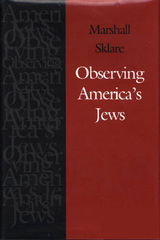
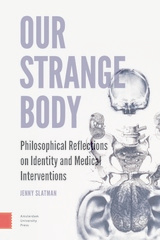

We usually think of women as the victims of pornography rather than its consumers. Whether appearing in films, peering provocatively from the pages of magazines, or posing on explicit Web-sites, women are considered the dehumanized objects of unseen lascivious male viewers. But in her controversial new book One for the Girls!, Clarissa Smith debunks this myth and challenges women to read, watch, and enjoy pornography on their own terms. Focusing on the British magazine For Women, Smith looks at its readers’ responses to male pinups and erotica and explores the intricacies of women’s unique reactions to pornography.

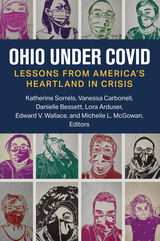
In early March of 2020, Americans watched with uncertain terror as the novel coronavirus pandemic unfolded. One week later, Ohio announced its first confirmed cases. Just one year later, the state had over a million cases and 18,000 Ohioans had died. What happened in that first pandemic year is not only a story of a public health disaster, but also a story of social disparities and moral dilemmas, of lives and livelihoods turned upside down, and of institutions and safety nets stretched to their limits.
Ohio under COVID tells the human story of COVID in Ohio, America’s bellwether state. Scholars and practitioners examine the pandemic response from multiple angles, and contributors from numerous walks of life offer moving first-person reflections. Two themes emerge again and again: how the pandemic revealed a deep tension between individual autonomy and the collective good, and how it exacerbated social inequalities in a state divided along social, economic, and political lines. Chapters address topics such as mask mandates, ableism, prisons, food insecurity, access to reproductive health care, and the need for more Black doctors. The book concludes with an interview with Dr. Amy Acton, the state’s top public health official at the time COVID hit Ohio. Ohio under COVID captures the devastating impact of the pandemic, both in the public discord it has unearthed and in the unfair burdens it has placed on the groups least equipped to bear them.
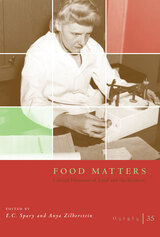
The essays delve into a range of topics, from early modern dietetics and debates about cannibalism to modern ready-to-eat rations and Ayurvedic recipes, from analyses of hungry model organisms to the dining rituals of Silicon Valley entrepreneurs and their patrons. As Food Matters shows, the history of knowledge about food has always raised debates about the shifting definition and boundaries of expertise: between traditional recipes and experimental protocols; between domestic craft skill and laboratory procedure; between the management and redistribution of resources for the social body on the one hand, and the subjective experiences of individual bodies on the other. At a moment when the authority of science is being questioned by a variety of publics, Food Matters is a timely reminder that such tensions, always present in food-related domains, reflect broader historical developments through which science became a prevalent force in shaping all aspects of public and private life.

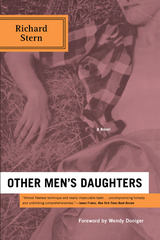
One reviewer writes, "I...was struck not simply by its psychological depth but particularly by the combination of toughness and tenderness through which romantic love was represented and discussed. The lack of sentimentality (in a novel about the refusal to live a life without love) was immensely important to me...and is likely ...to be immensely important ...today."
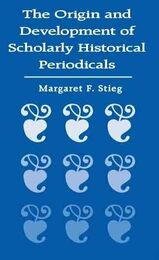
"This is a pioneering study and represents a major undertaking. . . . Stieg succeeds in making intelligible the diffuse and highly diversified nature of the historical periodical. At minimum, this title should be required reading of all history graduate students in methodology courses. Many senior historians would also benefit from a review of its contents. . . . Information and library science students specializing in scholarly communication should digest the entire study." —Journal of Education for Library and Information Science
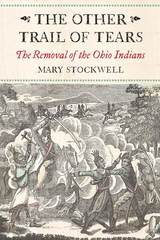
The Indian Removal Act of 1830 was the culmination of the United States’ policy to force native populations to relocate west of the Mississippi River. The most well-known episode in the eviction of American Indians in the East was the notorious “Trail of Tears” along which Southeastern Indians were driven from their homes in Georgia, Alabama, and Mississippi to reservations in present-day Oklahoma. But the struggle in the South was part of a wider story that reaches back in time to the closing months of the War of 1812, back through many states—most notably Ohio—and into the lives of so many tribes, including the Delaware, Seneca, Shawnee, Ottawa, and Wyandot (Huron). They, too, were forced to depart from their homes in the Ohio Country to Kansas and Oklahoma. The Other Trail of Tears: The Removal of the Ohio Indians by award-winning historian Mary Stockwell tells the story of this region’s historic tribes as they struggled following the death of Tecumseh and the unraveling of his tribal confederacy in 1813. At the peace negotiations in Ghent in 1814, Great Britain was unable to secure a permanent homeland for the tribes in Ohio setting the stage for further treaties with the United States and encroachment by settlers. Over the course of three decades the Ohio Indians were forced to move to the West, with the Wyandot people ceding their last remaining lands in Ohio to the U.S. Government in the early 1850s. The book chronicles the history of Ohio’s Indians and their interactions with settlers and U.S. agents in the years leading up to their official removal, and sheds light on the complexities of the process, with both individual tribes and the United States taking advantage of opportunities at different times. It is also the story of how the native tribes tried to come to terms with the fast pace of change on America’s western frontier and the inevitable loss of their traditional homelands. While the tribes often disagreed with one another, they attempted to move toward the best possible future for all their people against the relentless press of settlers and limited time.

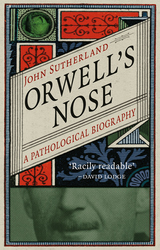
Sutherland airs out the odors, fetors, stenches, and reeks trapped in the pages of Orwell’s books. From Winston Smith’s apartment in Nineteen Eighty-Four, which “smelt of boiled cabbage and old rag mats,” to the tantalizing aromas of concubine Ma Hla May’s hair in Burmese Days, with its “mingled scent of sandalwood, garlic, coconut oil, and jasmine,” Sutherland explores the scent narratives that abound in Orwell’s literary world. Along the way, he elucidates questions that have remained unanswered in previous biographies, addressing gaps that have kept the writer elusively from us. In doing so, Sutherland offers an entertaining but enriching look at one of the most important writers of the twentieth century and, moreover, an entirely new and sensuous way to approach literature: nose first.
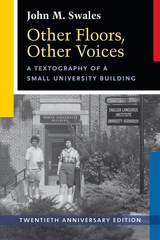
Originally published in 1998, Other Floors, Other Voices uses texts to capture the lives of three communities operating within a single building (the North University Building, or NUBS) on the University of Michigan campus. Swales' thoughtful exploration of the three units—the Computer Resource Site, the University Herbarium (botany), and the English Language Institute—centers around the individuals who work on each floor and the discourse-related activities they engage in.
The Twentieth Anniversary Edition of Other Floors, Other Voices includes: a new preface, an introductory essay on the value of rereading this volume many years after publication, and an epilogue that reflects on and reveals what has happened to the three units in the past 20 years.

From her perch in rural Kalona, Iowa, Swander discovers new strength and self-reliance along with a community of hardworking and hospitable neighbors. Raising goats and poultry, participating in barn raisings and auctions, protecting her garden from a plague of grasshoppers, creating a living crèche at Christmastime, all the while laughing at her attempts to wrestle with the pioneer challenges of midwestern winters and summers, she explores what it means to be a lone physical and spiritual homesteader at the end of the twentieth century.
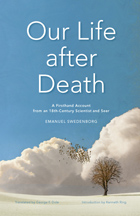
In his classic Heaven and Hell, Swedenborg takes the reader on a journey through the afterlife, describing the spiritual world in intricate detail. Our Life after Death is a collection of writings from that volume that focus specifically on what happens to us as we cross over and what we experience as new souls in the world of spirits, where we prepare to find our soul’s permanent home.
Swedenborg tells us that it is not God who judges people and send them to either heaven or hell, but rather it is we who judge ourselves. In this book Swedenborg reveals the process by which people confront who they were on earth, discover their true selves, and use that self-knowledge to discover their final home in the afterlife.
An introduction by near-death researcher Dr. Kenneth Ring draws parallels between Swedenborg’s experiences and those of millions of modern people who have had near-death experiences. This book provides a brief but thought-provoking introduction to Swedenborg’s afterlife for those who want to delve deeper into this fascinating subject.


This is an auto-narrated audiobook edition of this book.
In 1922 Robert Allerton—described by the Chicago Tribune as the “richest bachelor in Chicago”—met a twenty-two-year-old University of Illinois architecture student named John Gregg, who was twenty-six years his junior. Virtually inseparable from then on, they began publicly referring to one another as father and son within a couple years of meeting. In 1960, after nearly four decades together, and with Robert Allerton nearing ninety, they embarked on a daringly nonconformist move: Allerton legally adopted the sixty-year-old Gregg as his son, the first such adoption of an adult in Illinois history.
An Open Secret tells the striking story of these two iconoclasts, locating them among their queer contemporaries and exploring why becoming father and son made a surprising kind of sense for a twentieth-century couple who had every monetary advantage but one glaring problem: they wanted to be together publicly in a society that did not tolerate their love. Deftly exploring the nature of their design, domestic, and philanthropic projects, Nicholas L. Syrett illuminates how viewing the Allertons as both a same-sex couple and an adopted family is crucial to understanding their relationship’s profound queerness. By digging deep into the lives of two men who operated largely as ciphers in their own time, he opens up provocative new lanes to consider the diversity of kinship ties in modern US history.

"As befits a state in which coal, iron, and steel were the bulwarks of its industrial sector, Taft stresses that history of unionism among coal miners and iron and steel workers. Here we learn much about the experiences of the United Mine Workers of America and the Steel Workers Organizing Committee—United Steelworkers of America in the Deep South. Yet Taft does not neglect the history of other Alabama workers. Building tradesmen, railroad employees, textile millhands, and Gadsden’s rubber workers all appear in the pages of this book. Here we have the most complete and modern history of a state labor movement in the South written from the perspective of its institutional leaders." —American Historical Review

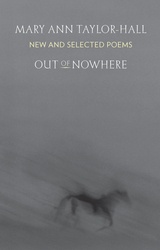



In this timely book, historian Romila Thapar delves into the complex world of nationalism and its impact on the interpretations of the past and on the discipline of history itself. History, she expounds, is no mere collection of information and chronology, and its purpose extends well beyond storytelling.
Recognizing nationalism as a powerful force that gives rise to various narratives that provide ancestry to communities and shape the direction of societies, Thapar explores how, in India, two conflicting notions of nationalism have evolved and shaped the idea of the nation. Today, one such nationalistic theory claims the victimization of one religious community by another through centuries of “misrule.” Such a claim willfully ignores ample evidence to the contrary to suit a particular political and ideological purpose. Thapar counters such attempts at misrepresentation by citing several historical instances of the nuanced interface and intermingling of cultures, as well as by showing how today’s conflicts have their roots in the British colonial construction of India’s history. She also addresses the recent controversy surrounding the deletions of sections of Indian history textbooks published by NCERT, the Indian educational council, and suggests that the intention is more likely to be the promotion of a particular reading of history that conforms to the ideology of those in power.
Engaging and thought-provoking, Our History, Their History, Whose History? invites readers to question the authenticity of historical narratives touted by one group of nationalists, and it explores the clash between professional historians who study the past to understand our inherited present and fabricators who wield history for political gain.

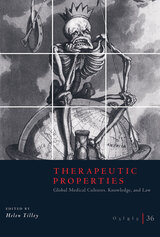
The contributions draw upon source material from the Americas, Africa, Western Europe, the Caribbean, and Asia to trace the influence of penal and civil codes, courts and constitutions, and patents and intellectual properties on not only health practices but also the very foundations of state-sanctioned medicine. The authors explore, too, how institutions of global governance, including those underpinning empires and trade, have historically created feedback loops that enabled laws and regulatory regimes to spread, amplifying their effects and standardizing approaches to diseases, drugs, professions, personhood, and well-being along the way. Highlighting the payoff of interdisciplinary and transnational analyses, this volume adroitly teases apart how different actors fought to write the rules of global health, rendering certain approaches to life and death irrelevant and invisible, others pathological and punishable by law, and others still, normal and natural.
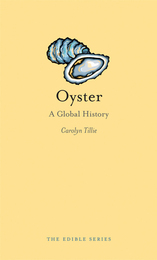
In Oysters: A Global History Carolyn Tillie delves into the culinary, artistic, sexual, historical, and scientific history of the humble bivalve. She shows how the oyster encouraged immigration and industry in the newly established United States, how it perpetuated slavery among those working in the oyster beds, and how Japan unexpectedly became the savior of the world’s oyster industry. Packed with colorful anecdotes, recipes, and more than fifty illustrations, this little book is a delightful introduction to the lore of the oyster.
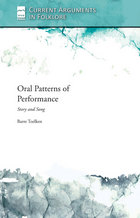
To many Native American cultures, songs and stories are dramatic enactments of reality, and words bring reality into existence. In this chapter from his award-winning book, The Anguish of Snails, Toelken thoughtfully approaches a number of stories from Native American traditions, discussing how narratives can be touchstones of shared values among closely associated traditional people and how songs and stories go far beyond an evening's entertainment or "lessons” about life. A traditional narrative can be a culturally structured way of thinking and of experiencing the patterns that make culture real.
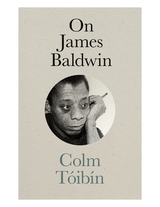
Acclaimed Irish novelist Colm Tóibín first read James Baldwin just after turning eighteen. He had completed his first year at an Irish university and was struggling to free himself from a religious upbringing. He had even considered entering a seminary and was searching for literature that would offer illumination and insight. Inspired by the novel Go Tell It on the Mountain, Tóibín found a writer who would be a lifelong companion and exemplar.
From On James Baldwin
Baldwin was interested in the hidden and dramatic areas in his own being, and was prepared as a writer to explore difficult truths about his own private life. In his fiction, he had to battle for the right of his protagonists to choose or influence their destinies. He knew about guilt and rage and bitter privacies in a way that few of his White novelist contemporaries did. And this was not simply because he was Black and homosexual; the difference arose from the very nature of his talent, from the texture of his sensibility. “All art,” he wrote, “is a kind of confession, more or less oblique. All artists, if they are to survive, are forced, at last, to tell the whole story, to vomit the anguish up.”
On James Baldwin is a magnificent contemporary author’s tribute to one of his most consequential literary progenitors.
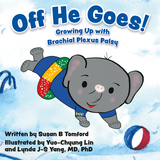
Attractive colorful multimedia images merge with easy-to-read text to make this young elephant’s story appeal to all pre-school children.
This board book is the product of the faculty and staff of the University of Michigan Brachial Plexus and Peripheral Nerve Program, inspired by the plight of orphan elephants in Africa and The David Sheldrick Wildlife Trust that helps orphaned calves reintegrate back into the wild as well as our patients who actively participate despite Brachial Plexus Palsy. Our clinical program strives to provide the best interdisciplinary care for patients through collaboration, research, and innovation – as we hope to improve the function and quality of life for all persons with brachial plexus and peripheral nerve dysfunction.
READERS
Browse our collection.
PUBLISHERS
See BiblioVault's publisher services.
STUDENT SERVICES
Files for college accessibility offices.
UChicago Accessibility Resources
home | accessibility | search | about | contact us
BiblioVault ® 2001 - 2024
The University of Chicago Press









